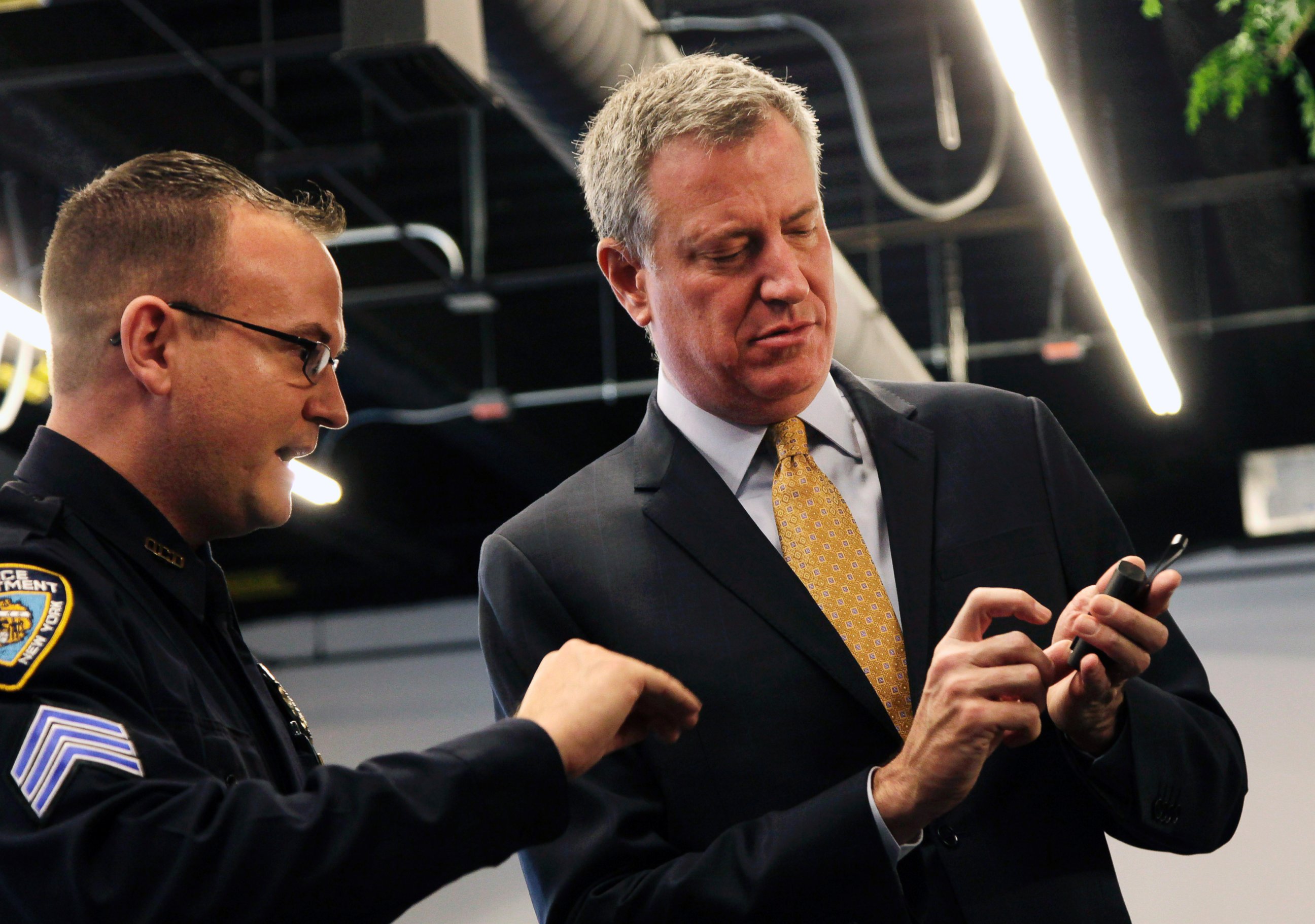Eric Garner Case Puts New Twist on Body Cameras as Solution to Police Brutality
Split opinions on the new technology in wake of Eric Garner case.
— -- With New York City is rolling out a limited pilot test program for police body cameras, former law enforcement officials and the relatives of Eric Garner are questioning what good additional footage will do in future cases if the Staten Island grand jury decided not to indict the police officer who put Garner in an apparent choke hold even with the incident caught on cell phone video.
Garner's mother Gwen Carr called the body camera program a "waste of money" when asked about it during a visit this morning to the site where her son died on July 17.
"Trash that. They're in control of the body cameras," she told a group of reporters, referring to the police. "The video camera didn't make a difference to the grand jury. What do we need body cameras for?"
In the Garner case specifically, the officer who administered the apparent choke hold was in plain clothes at the time, so even if body cameras were in use for the department, he would not have been wearing one, but the four other uniformed officers around him would have been equipped with the devices, which are generally worn on the chest.
New York officials have reiterated that the body cameras are not being implemented as a result of the Garner case but rather a result of Mayor Bill de Blasio's desired reforms on the controversial stop-question-and-frisk policy, though said they are aware that the recordings of police interactions will clearly have widespread repercussions.
NYPD Commissioner Bill Bratton said that the use of the cameras will elevate behavior on both sides of any interaction. "What you see is reforms in the behavior of officers and reforms in behavior of the public," Bratton said on Wednesday during a news conference before the grand jury's decision in the Garner case was announced.

De Blasio reiterated that idea this morning during an interview with local radio station Hot97, saying that while the Garner incident was caught on video and that didn't necessarily lead to the indictment of officer Daniel Pantaleo, future officers would be trained to know that their every move will be recorded.
"In that moment, those officers may have been aware of people holding up cell phones, but it wasn't part of their experience until that moment," de Blasio said. "When you train people, from day one, recruits go into the academy and they are trained that whatever they do ultimately will be seen publicly. They are wearing a camera. It's a reminder every hour of every day to comport themselves the right way."
Body cameras are used in some smaller American cities, with the Los Angeles suburb of Rialto, California, regularly held up as an example of the technology's success after the number of complaints against police dropped dramatically.
Rialto police participated in a year-long study in 2012 of the cameras' effectiveness, with half of the officers recording their interactions with civilians. TASER, the company that produces the ACON flex body cameras used in Rialto, reported that the number of use-of-force incidents dropped by 59 percent during that time period.



